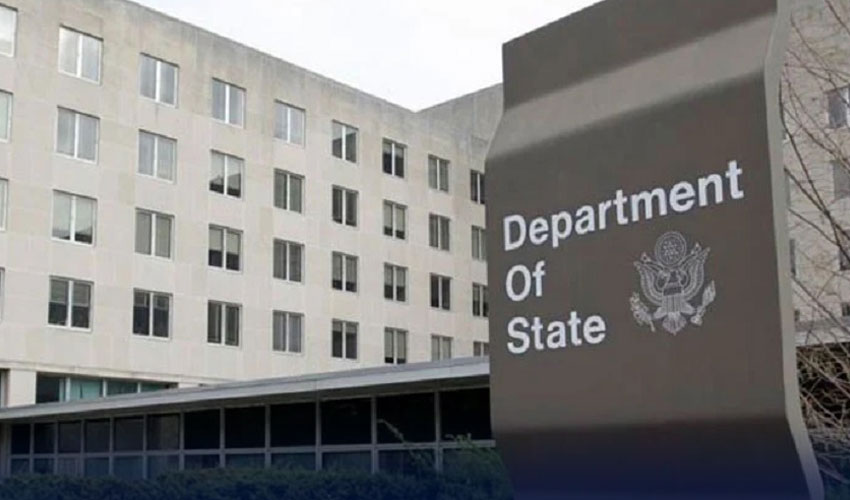A high-ranking US State Department official has responded to the counter-resolution Pakistan passed on Friday in reaction to the one recently passed by the US Congress regarding Pakistan's elections.
The official also underscored the current positive trajectory of US-Pakistan relations.
Elizabeth Horst, the principal deputy assistant secretary of state for south and Central Asian affairs, said the relationship between the two nations is currently at its strongest in years, characterized by a significant level of stability and expansion not seen in recent times.
"In any long-standing relationship, occasional differences are inevitable," Horst acknowledged during her statement, talking about a framework for addressing any existing disagreements between Washington and Islamabad.
Also Read: NA passes resolution against US House of Representatives resolution
"We have opened new dialogues and explored opportunities in diverse areas such as trade, health, energy, and climate," Horst elaborated, highlighting ongoing efforts to deepen bilateral cooperation beyond traditional diplomatic spheres.
This approach underscores a strategic shift towards fostering comprehensive ties that benefit both countries.
She also acknowledged that Pakistan's Ambassador to the US Masood Khan has acted as a bridge between Washington and Islamabad, . Khan's involvement has been instrumental in facilitating mutual understanding and cooperation across various fronts.
On Friday, the National Assembly on Friday passed a resolution opposing a recent resolution by the US House of Representatives.
The resolution, presented by Pakistan Muslim League-Nawaz (PML-N) leader and MNA Shaista Parvez Malik, faced strong opposition from members of the Sunni Ittehad Council, who vocally expressed their disapproval during the session.
Also Read: 'Cannot allow anyone to interfere in our internal affairs,' Dar on US resolution
The resolution was approved by a majority vote, despite the Sunni Ittehad Council members raising slogans and standing in protest. They shouted “Cipher Cipher” and “Shame Shame” to voice their dissent.
The passed resolution stated that millions of Pakistanis participated in democratic elections, and any foreign interference in Pakistan’s internal affairs is unacceptable.
It called on the United States and the international community to address human rights violations in Gaza and Kashmir, and urged the Pakistani government to strengthen bilateral relations with the US based on mutual respect.
Previously on June 27, Deputy Prime Minister and Foreign Minister Ishaq Dar called for a special session of the National Assembly to discuss Pakistan's foreign policy in light of a recent resolution by the US House of Representatives.
Speaking on the matter on the floor of the National Assembly, Dar proposed a special session on the foreign policy where the government will explain its policy. He highlighted the clarity and strength of Pakistan’s foreign policy.
Also Read: Pakistan responds to US Congress resolution on Feb 8 elections
"If you look at the statements of the prime minister, he has a clear foreign policy," he remarked.
“The proposal to hold a special session related to foreign policy is appropriate,” Dar said, urging the government to explain its stance and actions. He highlighted that the government had already responded to the American resolution, which was presented late on Tuesday night.
"We responded promptly, stating that Pakistan is the second-largest parliamentary democracy in the world," he noted.
A day earlier on June 26, the United States Congress refused to recognize the Pakistani elections held on February 8 as free and fair, calling for a comprehensive and independent investigation into the electoral process.
Also Read: US Congress refuses to recognize Pakistan elections as free and fair
In a resolution passed by the House of Representatives, an overwhelming majority of 368 members voted in favour, with only seven votes against. The resolution was announced by Congressman David Valadao, who emphasized its support for democracy in Pakistan.
The resolution condemns the harassment, threats, and internet service bans imposed on political members during the election period. It underscores the importance of respecting the vote of the Pakistani people and ensuring their voices are heard in the democratic process.
"The resolution was voted in favour of democracy in Pakistan," Valadao stated. "It is crucial that we stand with the Pakistani people in their pursuit of a fair and transparent electoral system."



























